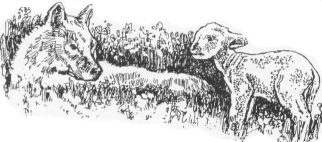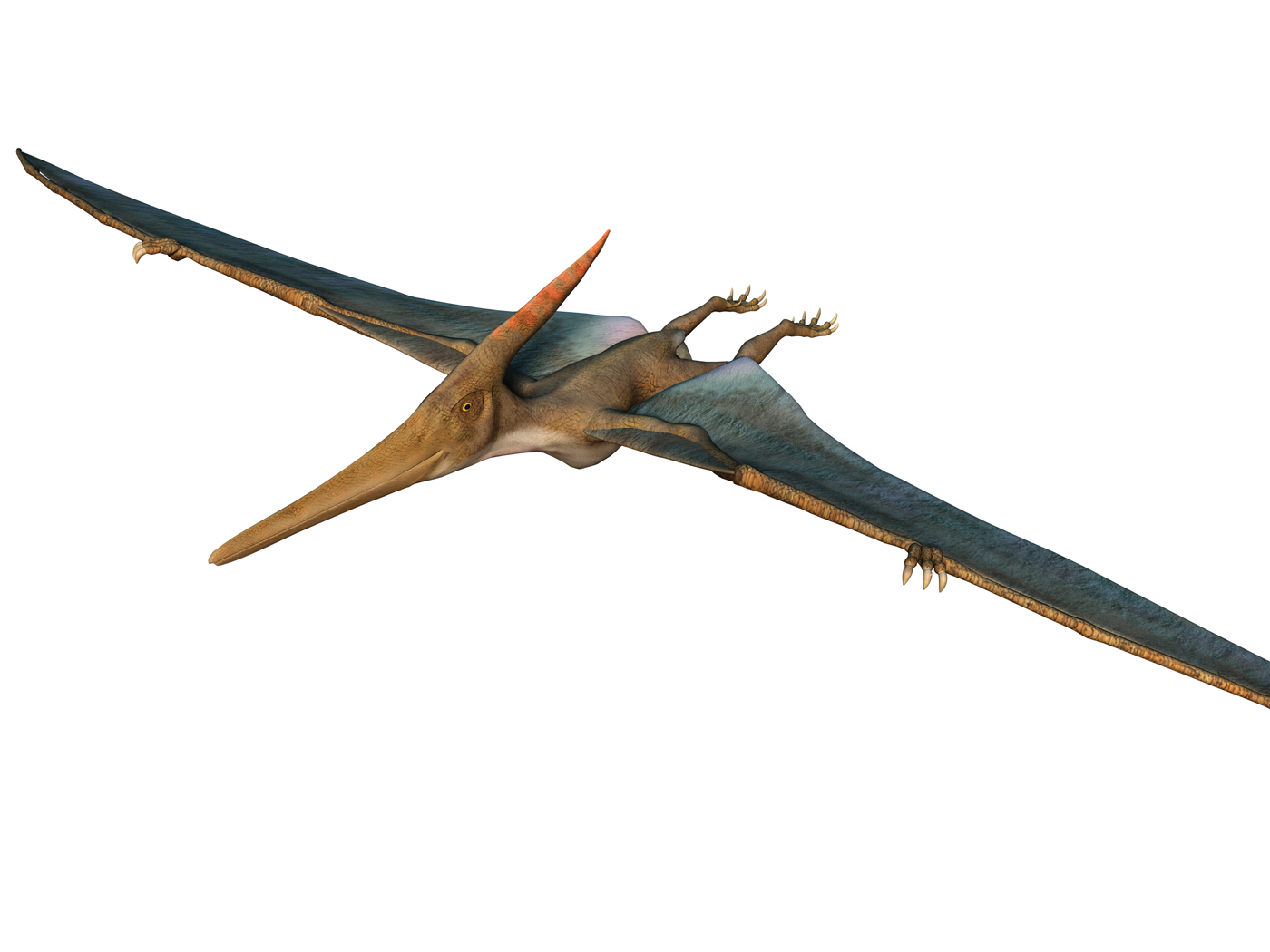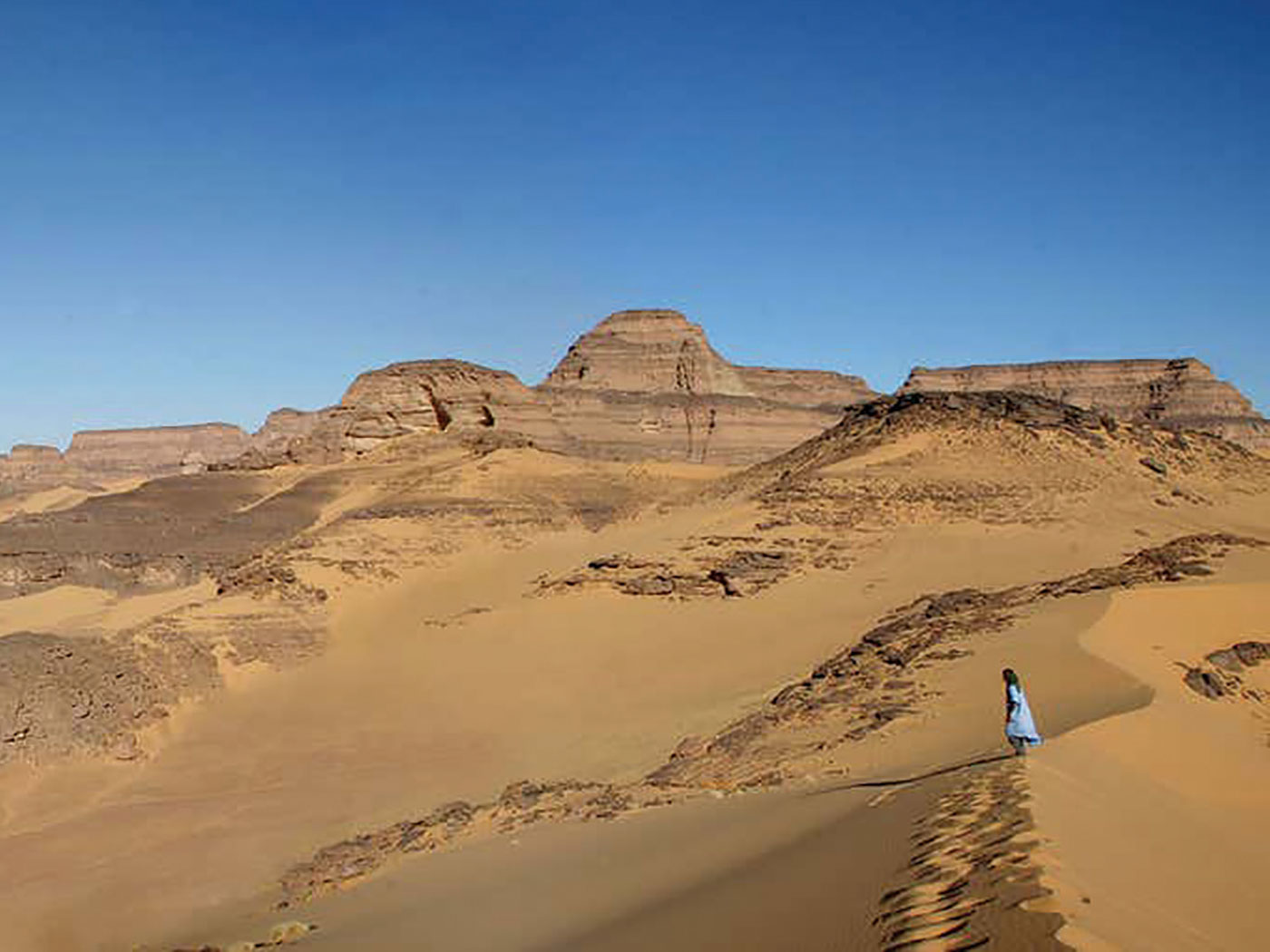
There is a beautiful picture given in the Bible of the divinely intended relationships in God's animal kingdom:
The wolf also shall dwell with the lamb, and the leopard shall lie down with the kid; and the calf and the young lion and the fatling together; and a little child shall lead them. And the cow and the bear shall feed; their young ones shall lie down together: and the lion shall eat straw like the ox. And the sucking child shall play on the hole of the asp, and the weaned child shall put his hand on the cockatrice' den. They shall not hurt nor destroy in all my holy mountain: for the earth shall be full of the knowledge of the Lord, as the waters cover the sea (Isaiah 11:6-9; see also Isaiah 65:25; Ezekiel 34:25; Hosea 2:18; etc.).
Whether this passage describes conditions on the earth in the coming kingdom age after Christ returns to Earth (as I personally believe) or not, it must at least describe the ideal conditions intended by God for His animal creation. Therefore, this must have been the way it was in the beginning, after God had completed His creation work, and surveyed it with deep satisfaction. "God saw every thing that He had made, and, behold, it was very good" (Genesis 1: 31). Therefore, "God ended His work which He had made; and … rested from all His work which God created and made" (Genesis 2:2,3).
God cared for the animals, placing them under man's stewardship, even authorizing Adam to examine and name them (Genesis 2:19,20). Furthermore, there was an abundance of food for all of them (Genesis 1:30), and definitely no "struggle for existence." The 19th century depiction of a "nature red in tooth and claw" (Tennyson) was diametrically opposite to the true picture of the primeval creation as revealed in God's word. At that time, all the animals were herbivorous and at peace with one another and with man.
That is not the way it is now, of course, for "sin entered into the world, and death by sin," so that "the whole creation groaneth and travaileth in pain together until now" (Romans 5:12; 8:22). God had to tell Adam: "Cursed is the ground [same as 'earth'] for thy sake" (Genesis 3:17), and Adam's whole "dominion" (Genesis 1:28) came down with him.
Evolutionists, however, have long regarded this groaning and struggling in nature as the basic means of evolutionary progress. The very conclusion of Charles Darwin's Origin of Species even seems to glory in this state of suffering and death:
Thus, from the war of nature, from famine and death, the most exalted object, which we are capable of conceiving, namely, the production of the higher animals directly follows. There is grandeur in this view of life, … (Last paragraph of Origin of Species, 1859).
Now, strange and sad to say, a number of leading evangelicals--those espousing either theistic evolution or progressive creation in their wistful attempt to hang on to the vast geological "ages" of the evolutionists, seem to agree in general with "this view of life." That is, they explain suffering and death in the animal kingdom not as a result of God's curse on the creation because of sin, but as a necessary component of the balance of nature. For example, physicist Don Stoner says:
There is scientific evidence that many creatures, from before the time of men, ate other animals. The evidence says there was animal death before Adam. (A New Look at an Old Earth, Shroeder Publishing, 1985, p. 47).
Of the many modern progressive creationists who hold similar views, one of the most influential is Hugh Ross. In his most recent book (which is mainly a polemic against "young-earth creationists," especially us at I.C.R.), Dr. Ross says:
An organism's place in the food chain determines its capacity for efficient work.... Considering how creatures convert chemical energy into kinetic energy, we can say that carnivorous activity results from the laws of thermodynamics, not from sin ... we cannot realistically compare the suffering and death of animals to the suffering and death of humans (Creation and: Time, Navpress, 1994, pp. 62,63).
Thus, progressive creationists see no theological or Biblical problems with having animal death prior to human sin, nor in the idea of billions of animals suffering and dying long before God got around to placing them under man's dominion (whatever that could mean, after the animals had already been around for a billion years).
We literal creationists do see problems in this idea, however. The concept of an omnipotent, omniscient, loving, caring God devising such a scheme somehow seems to stick in our mental throats whenever they ask us to swallow it.
Knowledgeable evolutionists have difficulty with it, too. For example, Dr. Holmes Rolston III, distinguished professor of philosophy at Colorado State University, has addressed this question in a recent article in a journal devoted to the interface between science and religion.
The real problem is with the fall, when a once-paradisiacal nature becomes recalcitrant as a punishment for human sin. That does not fit into the biological paradigm at all.... There was struggle for long epochs before the human arrival, … nature is also where the fittest survive, 'red in tooth and claw,' fierce and indifferent, a scene of hunger, disease, death. In addition, nature is what it is regardless of human moral failings, indeed regardless of humans at all ("Does Nature Need to be Redeemed" Polygon, June 1994, pp. 205,206).
Rolston finds it completely impossible to harmonize the Biblical record with the standard concept of biological history.
So does Stephen Jay Gould, probably the nation's most influential evolutionist. He stresses not only the cruelty of natural history, but also its randomness, with no indication of direction or purpose.
Moreover, natural selection, expressed in appropriate human terms, is a remarkably inefficient, even cruel process. Selection carves adaptation by eliminating masses of the less fit--imposing hecatombs of death as pre-conditions for limited increments of change. Natural selection is a theory of "trial and error externalism"—organisms propose via their storehouse of variation, and environments dispose of nearly all—not an efficient and human "goal-directed internalism" (which would be fast and lovely, but nature does not know the way). ("The Power of this View of Life," Natural History, June 1994, p. 6).
Dr. Hugh Ross tries to mitigate the harshness of the process by saying that some kind of "mini-creation" process is activated every time a new species appears, maintaining that these millions of mini-creations, which he postulates, make him a creationist. It is obvious, however, that such a system is merely theistic evolution under another name. In any case, it does not do away with the utter cruelty and randomness of the whole monstrous system. How can we dare blame God for such a thing? Gould's atheism is much more logical than so-called "progressive creationism!" As Dr. David Hull, professor of philosophy at Northwestern University says:
Whatever the God implied by evolutionary theory and the data of natural history may be like, … He is certainly not the sort of God to whom anyone would be inclined to pray (Nature, August 8, 1992, p. 486).
Alternatively, as Dr. Gould said, in an earlier article:
You can hardly blame the divine Paley for not even imagining such a devilish mechanism ("Darwin and Paley Meet the Invisible Hand," Natural History, November 1990, p. 14).
The God of the Bible is neither capricious nor cruel, and it is a mistake to think He would use the "devilish mechanism" of billions of years of trial-and-error variation, struggle, suffering, and death in the animal world as prologue to His great plan for creating and redeeming men and women.
His creative purpose, instead, was that "they shall not hurt nor destroy in all my holy mountain." Anything other than that can only be rightly understood as a later intrusion into God's "very good" creation.
* Dr. Morris is Founder and President of the Institute for Creation Research.




















